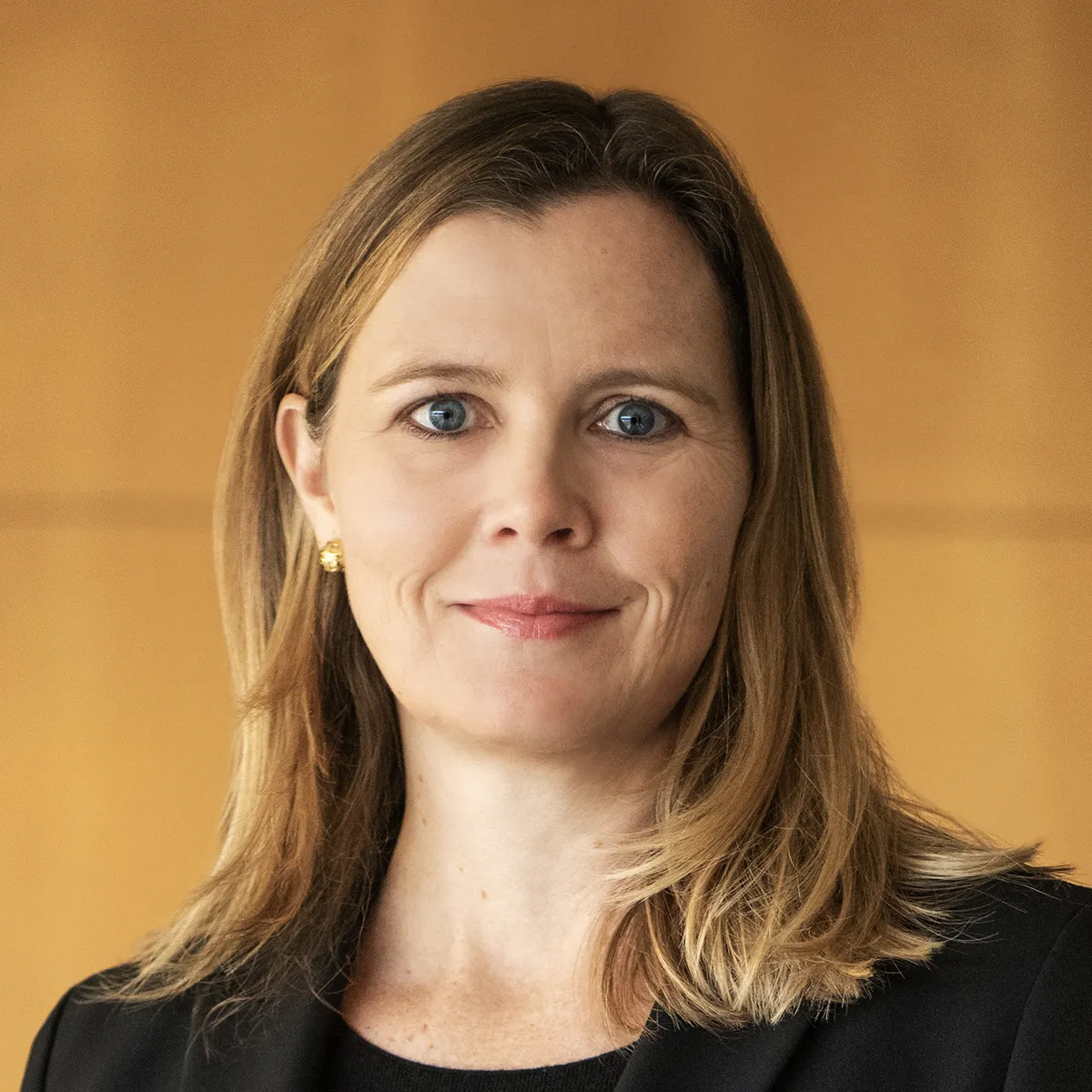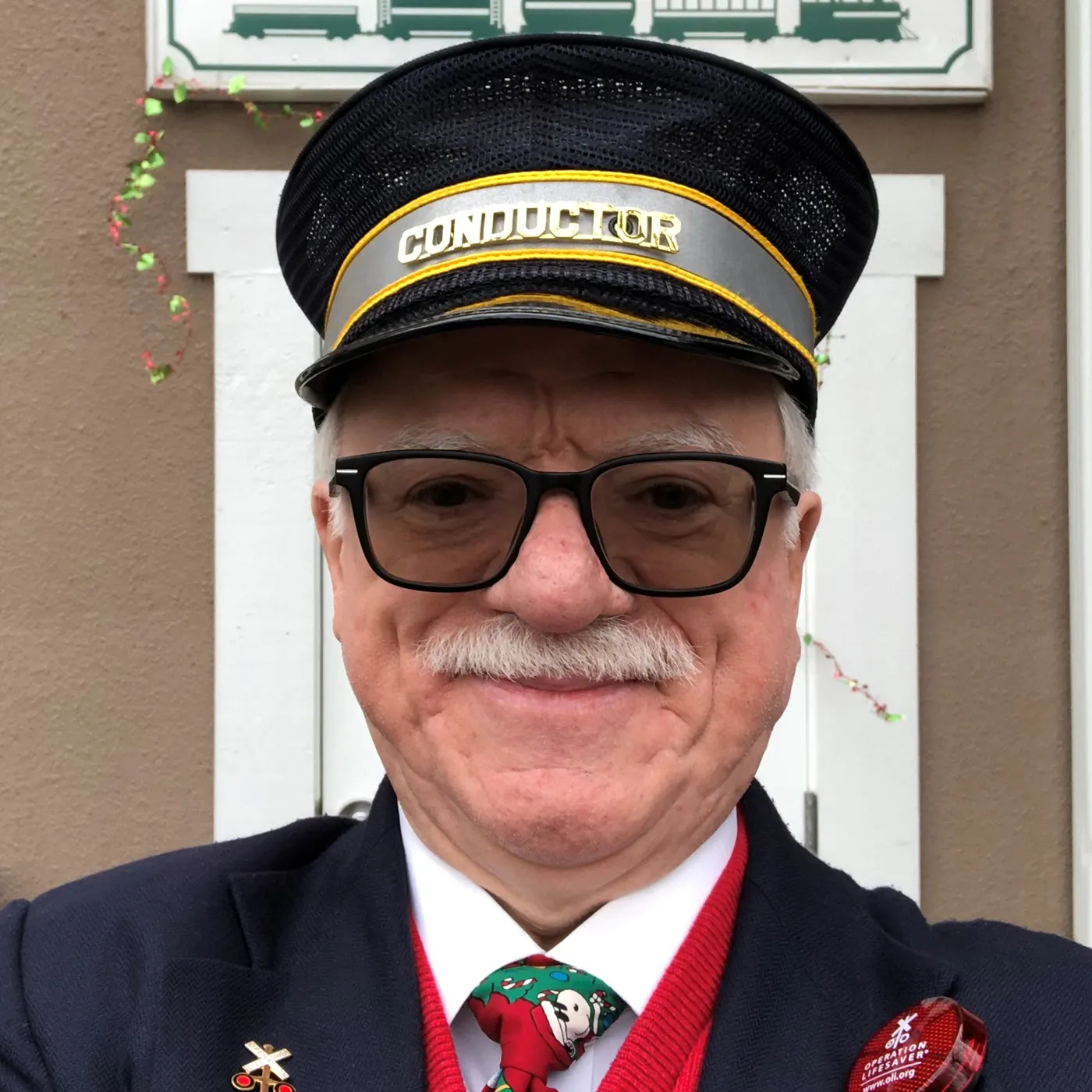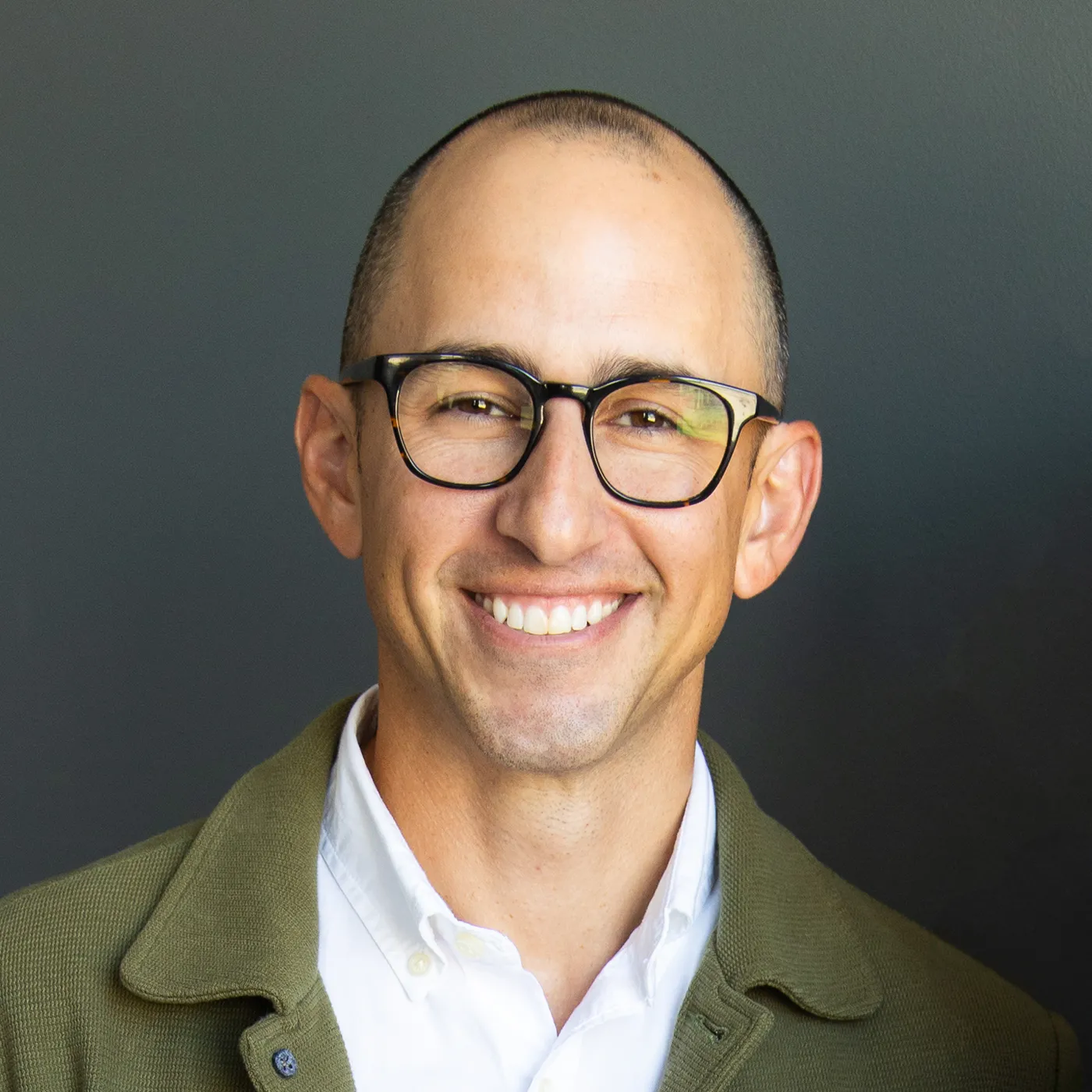Student Perspectives on International Law
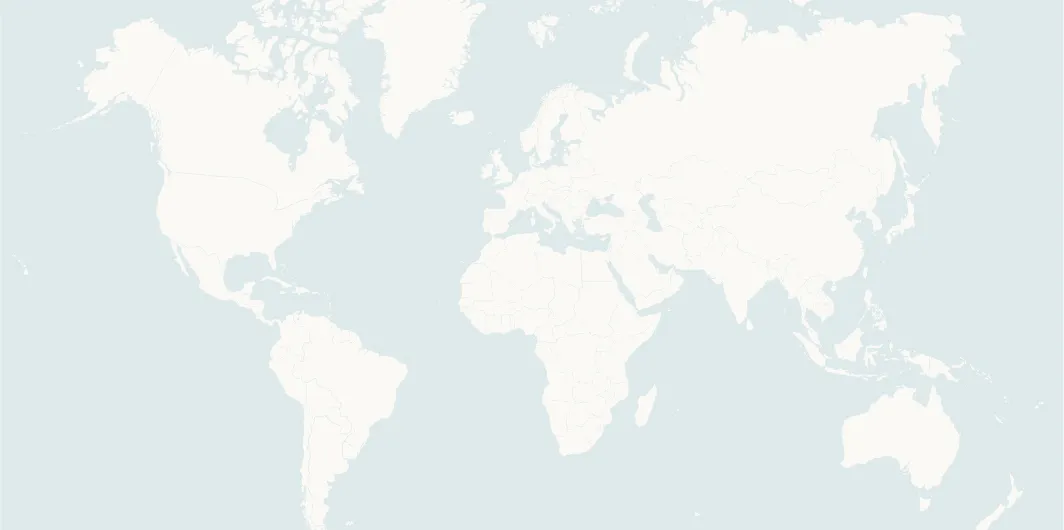
When Daniella Apodaca, ’25, came to the Law School, she had a hunch she might work in the international arena. She spoke three languages and liked learning about other countries.
Kirby Voss, ’26, had somewhat of a winding road to the Law School—he had spent ten years as a professional film director—but, like Apodaca, always had a keen interest in all things international. By the time he started law school, he had already travelled to more than thirty countries.
Both Apodaca and Voss were attracted to the Law School because it offers a robust selection of courses on international and comparative law, trips to meet experts and students from other countries, and internationally focused student organizations. Both contend that the knowledge gleaned from these experiences has helped them hone their professional aspirations, but more importantly, broadened their view of the inner workings of governments and the world.
Apodaca: There’s Much to Be Gained from Comparing Countries’ Systems
Apodaca’s first language is Spanish, and English is her second. She studied French throughout grade school, college, and graduate school, where she earned a master’s degree in French and Spanish literature.
During her 1L year, Apodaca traveled to Dublin, Ireland, through the Law School’s International Immersion Program. She later interned at the British Institute of International and Comparative Law (BIICL); attended the Salzburg Cutler Fellows Program in Washington, DC; and worked in the Immigrants’ Rights Clinic. She competed this past winter (and her team won) in the Jessup Moot Court Competition, an experience that provides a simulation of a fictional dispute between countries before the International Court of Justice.
“When I was working at BIICL,” Apodaca said, “I was lucky to meet many people researching different areas of law, and I could explore what I was most interested in.” She eventually decided to focus on international arbitration after working closely with a researcher who specialized in arbitration disputes.
“Arbitration is a small and peculiar field. To practice in the area you must be intentional,” Apodaca said. Her research at BIICL laid the path for her 2L summer, which she spent in the New York City office of Freshfields Bruckhaus Deringer LLP, a global firm with a multilingual environment.
“International law is an incredibly broad field,” she said. “The more I learned about it, the more I found it’s important to connect with people who specialize in areas you’re interested in.”
Another thing Apodaca discovered is that public international law is predicated on cooperation. For example, when she went to Dublin as a 1L, she saw how involved outside countries were in negotiating peace in Northern Ireland. She saw again that cooperation was important when she attended the Salzburg Cutler Fellows Program in DC, a program that brings together top law students and legal practitioners from around the country to examine critical issues impacting the international law agenda.
“We talked a lot about how forces inside and outside Russia shaped the Russia-Ukraine conflict,” said Apodaca. “Seeing the level of engagement was fascinating.”
Apodaca believes that many in the United States think its involvement in other countries in times of conflict is necessary. She also understands that outside involvement can stir things up. The formula for how countries should cooperate and intervene is not set in stone.
“I truly believe understanding how different legal systems shape the world might help us find answers to problems we thought intractable.” Daniella Apodaca, ’25
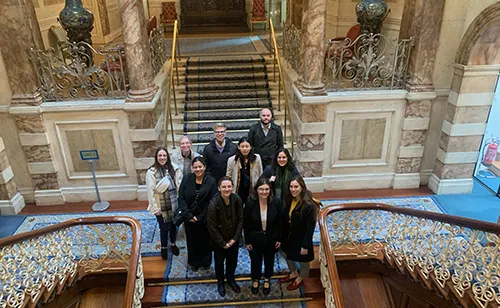
“Take the Dayton Accords, which provided the framework for peace between Bosnia and Herzegovina,” Apodaca said. “The entire Bosnian constitution was drafted as an annex to the accords.”
The new constitution—developed by experts both inside and outside the country—played a big part in bringing peace to the region, but the constitution was incomplete because it addressed the chaos of a particular time and was not designed to manage society beyond that.
“The solution was not perfect, but the countries at war needed a big power to sit people at the table,” Apodaca said.
Voss: There’s a Tough Line Between Moral Relativism and Appreciating That Different Viewpoints Are Valid
Voss first traveled outside the United States when he was twelve years old. In college, he learned Mandarin and studied abroad in Taiwan. When he was a film director, he taught in Shanghai at the Vancouver Film School.
Having just wrapped up his 2L year, Voss has traveled to Uzbekistan and South Korea through the Law School’s International Immersion Program. He also joined the staff of the Chicago Journal of International Law and, like Apodaca, was chosen to attend the Cutler Fellows Program in Washington, DC.
Voss also spent six weeks studying private and public international law at the Peace Palace at the Hague last summer. There, he discovered how much students from other countries wanted the United States to stand up for NATO and for western liberal values against Russia and China.
“I was surprised at how many of the international students I met look to us for leadership,” Voss said. “I was also sad to learn that some of the same students wouldn’t talk to me after I visited the Israeli Embassy, even though I had visited the Embassy of Egypt the week before.”
This dichotomy made him appreciate the Chicago Principles.
“At the Law School, free and open expression is the norm. I disagree seriously with some of my best friends. I go to events by the Federalist Society one day and the American Constitution Society the next,” he said. “There’s an assumption of goodwill that I thought was everywhere.”
Voss has also learned that while other countries rely on US leadership, it would be shortsighted to think we have more influence than we do. When Voss visited Kosovo and Serbia, for example, Anthony Blinken, the US Secretary of State, flew over because the two countries were close to war over car license registration fees collected before 1990.
Voss’s first instinct was to think, “Wow, that’s a dumb thing to go to war over.” But his second instinct was to realize that the issue was important to the countries involved.
“You [come to] understand that we all have equally valid perceptions of the world,” Voss said. “There’s a tough line between moral relativism and appreciating that different viewpoints are valid. It is important to explore gray areas.”
Before he attended law school, Voss thought law was about what is fair. In his first year, he learned to expand that idea and look at law from an economic perspective. Studying international law then taught him to consider norms and consent.
“Trying to understand domestic law through a consent-based framework is philosophically and practically relevant. I’d encourage any student to study public international law for that purpose,” he said.
Voss would also encourage other law students to find mentors, noting that spending time with experts in the international field has been one of the most meaningful parts of his Law School experience. It has emboldened his desire to focus on foreign relations and national security.
“Professor Tom Ginsburg came to Uzbekistan with us,” Voss said. “It was incredible to have informal conversations with a titan in the field. Interacting with our faculty socially and academically has been significant for me.”
“You [come to] understand that we all have equally valid perceptions of the world. There’s a tough line between moral relativism and appreciating that different viewpoints are valid. It is important to explore gray areas.” Kirby Voss, ’26
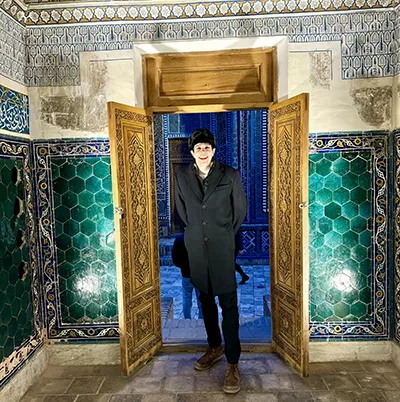
Appreciating the Value of a Global Mindset
Apodaca and Voss say that studying international law has changed them for the better. Both recognize the value of cooperation and interacting one-on-one with professors and students from other countries. Both have been able to learn, through their various trips and internships, that nothing exists in a vacuum.
“Anyone who wants to gain exposure to a new country and its way of doing things is going to learn something about themselves,” Apodaca said. “I truly believe understanding how different legal systems shape the world might help us find answers to problems we thought intractable.”
Voss puts it another way. “You can’t be a well-rounded person today without knowing anything about the rest of the world. We’re all part of a greater system,” he said. “Understanding this helps us have empathy, of course, but knowing this is also practical. It’s the way the world works.”
Apodaca added: “The Law School teaches us to think globally, but spending time abroad helped me see how foreign relations and operations work and how countries influence one another. There’s much to be gained from comparing countries’ systems.”
Voss also thinks that being able to put yourself in somebody else’s shoes is an essential part of not only diplomacy, but also things like national security.
Apodaca agrees. During her 3L year, she tutored a law student in the Ukraine. Their common language was English as they compared the American and Ukrainian legal systems through legal writing exercises. They often ended up talking about how the United States and Ukraine are different, down to the granularity of grammatical language differences.
“Learning other perspectives makes you a better citizen,” Apodaca said. “It makes you a global citizen. It helps you understand the contexts behind different ways of thinking, even if you don’t always agree. It helps you see the world, and yourself, through a new lens.”


